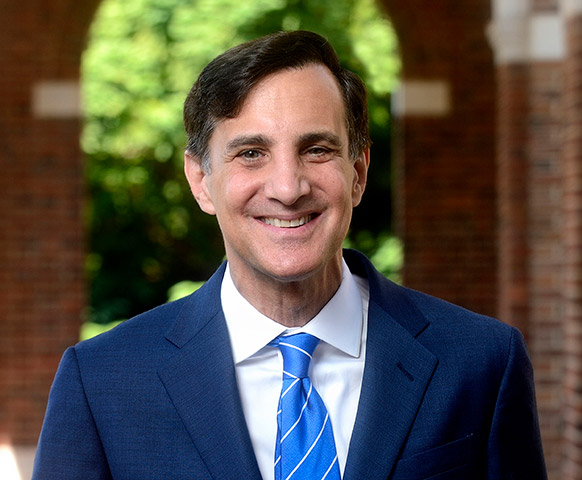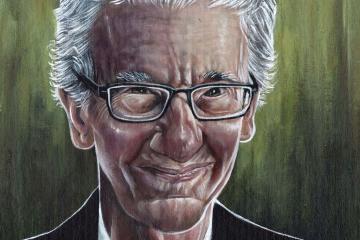
Image caption:
Ronald J. Daniels
President
Earlier this semester, I had the privilege of formally inducting Roland Griffiths as our inaugural Oliver Lee McCabe III Professor in the Neuropsychopharmacology of Consciousness.
This endowed professorship is the first ever at our university devoted principally to psychedelics research.
Twenty years ago, this professorship would have been almost unthinkable. We owe its existence to Dr. Griffiths, whose celebrated psilocybin studies resuscitated psychedelic research after decades of dormancy. (See our article in this issue on Roland Griffiths)
Roland never intended to lead a global renaissance in this field. From the moment he arrived at our School of Medicine in 1972, he pursued his curiosity down a multitude of paths—none of them having anything to do with psychedelics. His studies on substances, including caffeine and hypnotic sedatives, established Roland as an international authority on psychopharmacology. But he never ceased exploring, and, following what he has called transformative meditation experiences (honed through years of personal practice), he turned to the scientific study of consciousness and, eventually, in 1999, to psilocybin.
For decades, there was a general understanding within the scientific community that psychedelic research was a career killer. Undeterred, Roland designed a landmark clinical study that investigated the effects of psilocybin. As he recently recounted, there was no assurance that Hopkins would authorize the endeavor. Out of deference to our core commitment to the scientific method and the rigorous way in which Roland's study was constructed, we did.
Not only did Roland establish that psilocybin can be administered safely in clinical settings, he and his colleagues have since demonstrated the potential of psilocybin to ameliorate stress in terminal cancer patients and to treat severe depression, among other findings. His work also resulted in the first National Institutes of Health grant in more than 50 years to investigate a classic psychedelic, opening up pathbreaking possibilities for mental health treatment.
With characteristic modesty, Roland has described himself as "simply a curious scientist with the right training at the right time with the right colleagues in the right institution." His extraordinary story reinforces powerfully the importance of being an institution that supports individual acts of imagination even (and, perhaps, especially) when they collide with received wisdom. At its best, a university like Hopkins is a place committed to truth-seeking and to supporting those scholars courageous enough to challenge prevailing orthodoxy and to pursue their ideas wherever they lead.
Roland has been diagnosed with stage 4 colon cancer, and his time with us is sadly limited. Even when he is no longer with us, his fearlessness and audacity in pursuit of a deeper truth will continue to inspire us all. We at Hopkins are truly fortunate to count him as our colleague, and our world is better for his myriad contributions to science and human flourishing.

Ronald J. Daniels
President










